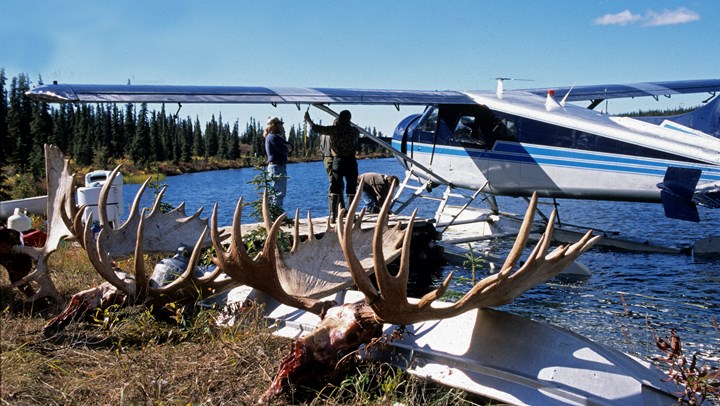
by Phil Phillips - Thursday, December 29, 2016

If you've been saving for that big Alaska hunting adventure in 2017, BUY NOW AND SAVE BIG as nonresident hunting license and tag fees double on Jan. 1, 2017. While the state is raising all nonresident hunting, fishing and trapping licenses and tags, it is allowing hunters to buy 2017 licenses and tags at 2016 rates through Dec. 31. Typically once a state raises such fees, hunters must pay the new rate regardless of on what date the license and tag are purchased.
The 2017 rates mark the first time in 24 years that hunting license and tag fees have increased. (Fishing licenses last increased about a decade ago.) Because revenues from hunting, fishing and trapping licenses and tags fund state wildlife management and conservation and can be matched with federal dollars through the Pittman-Robertson Act, the more a state raises, the more federal dollars it is eligible to receive.
While we hunters are America's premier conservationists, of course, you're the one set to buy that 2017 nonresident grizzly bear, moose or other big game license and tag. If the new pricing is more than you budgeted, you may not be going next year. Particularly in the case of the higher-end muskox tag, for example, doubling from $1,100 to $2,200 may mean your hunt of a lifetime is postponed.
"Alaska's new prices are in line with other states," said Alaska Department of Fish and Game (ADFG) Commissioner Sam Cotten, in an ADFG news release. He also said fees will be "significantly less expensive for resident hunters because Alaskans don't pay resident hunting tag fees."
If you're a nonresident who is Alaska bound in 2017, click here to lock in 2016 pricing. For sample rates, 2016 rates are $500 for a grizzly or brown bear tag vs. $1,000 on Jan. 1; $400 vs. $800 for moose; $325 vs. $650 for caribou; $225 vs. $450 for black bear; and, as mentioned above, $1,100 vs. $2,200 for muskox. Price increases are also important to note for hunters who typically purchase supplemental tags on their hunts.
Share this article link on social media so hunters know to either act today or plan accordingly. While the ADFG said most sportsmen's groups are supportive of the Alaska State Legislature's vote to raise rates, a large percentage of hunters may not yet be aware of the move.
In the name of public awareness, on a similar topic I recently got a questionnaire from my home state of Colorado Parks and Wildlife. It asked resident hunters to share their thoughts on doubling the price of resident hunting licenses, offering a potential dooms-day scenario if we didn't agree to do so. While raising money for conservation is always good, part of my response was that if Colorado would manage the predators and bring the mule deer numbers back, the number of resident and nonresident hunters alike would increase, more than offsetting the change in resident fees. Coincidentally, shortly after filling out that questionnaire, Colorado announced a three-year study on the Roan Plateau through which the state plans to take out a large percentage of bears and mountain lions to review the impact predators are having on declining mule deer herds.
E-mail your comments/questions about this site to:
[email protected]
Proudly supported by The NRA Foundation and Friends of NRA fundraising.
